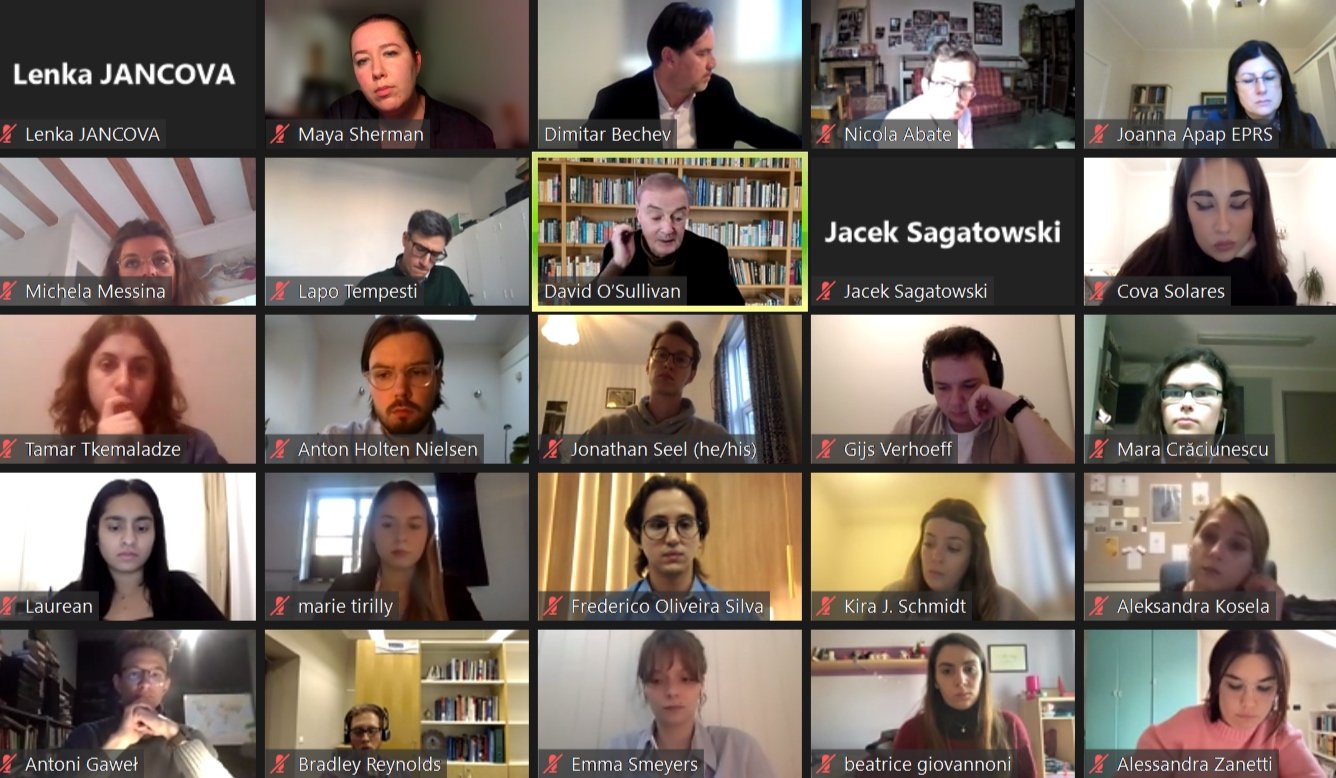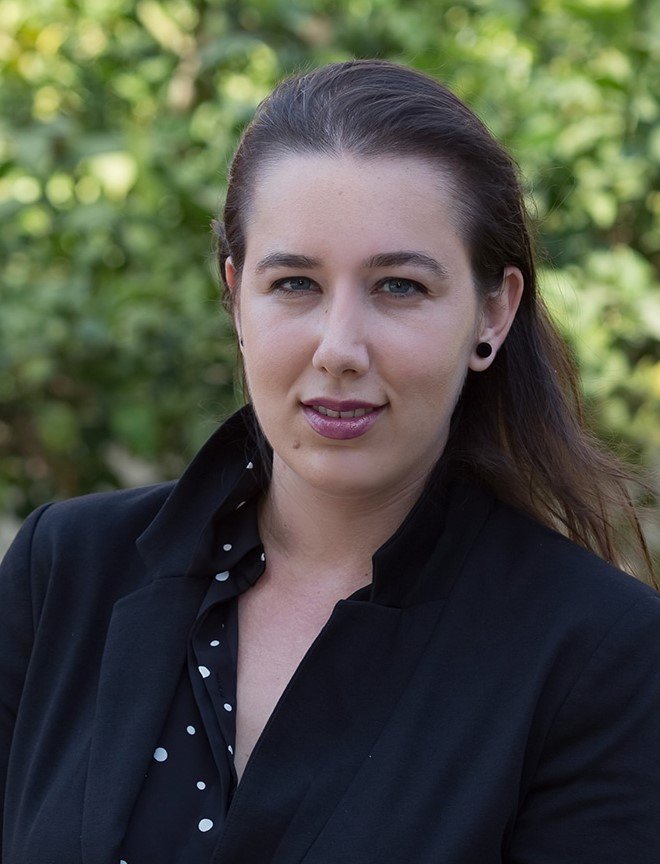Between Climate and Data: Emergency Policies during Pandemic
With the beginning of Hilary Term and inconsistent COVID policy restrictions all across Europe, I was honoured to be chosen as a visiting policy student in the 2022 Europaeum Policy Seminar, Policy-making Inside Europe, organized in collaboration with the European Parliamentary Research Service. With the Omicron spread, what was supposed to be a 3-day trip in Brussels, practising my French classes from university, turned to be a virtual encounter via Zoom, but no less fascinating, with ambitious young scholars all across Europe, discussing the most urging topics our society is facing.
Europaeum, which is also known as the ‘university without walls’, is composed of 18 university members focusing on the Humanities or Social Sciences and leads workshops, seminars, conferences and debates. The main goal of this student network is to create bridges and connections for better students from multidisciplinary spheres, in a bid to debate core topics on the European agenda.
Among its numerous events, the annual policy seminar selects up to 20 students enrolled on master’s or PhD courses from universities within the Europaeum network, to connect academic and policy institutions and discuss preparation and implementation of EU policies. Throughout the conference, we discussed and debated a myriad of key topics in the EU policy agenda, including but not limited to Digital Governance in the EU, the Conference on the Future of Europe, Europe's green transition, EU crisis management and post-COVID economic recovery and EU-NATO cooperation in the context of transatlantic relations.
We had the rare opportunity to hear the valuable inputs of key figures in policy and decision making in Brussels, including but not limited to Anthony Teasdale (Director General of the European Parliamentary Research Service), Mark Boris Andrijanič (Minister for Digital Transformation of Slovenia), Heidi Hautala (MEP, Vice-President of the European Parliament), Antonio Missiroli (Former Assistant Secretary-General for Emerging Threats, NATO) and David O'Sullivan (former Secretary-General of the European Commission).
It was a pleasure to represent the Oxford Internet Institute and contribute my insights from the angle of Digital Ethics and Governance. Among the topics, we the aptness and efficiency of the Conference on the Future of Europe, as well as the redefinition of Digital Sovereignty in the EU.
The Conference on the Future of Europe exhibits a pioneering attempt to redefine the democratic rules of the game, establishing a civic tech platform for all Eu citizens, in a bid to discuss and debate crucial political topics on the EU agenda online. Critically, this platform is characterized by its multilingual nature and randomized citizen selection, integrated with an innovative e-translation system, capable of translating online content in real-time for all the 26 spoken languages in the EU. Providing a transnational dialogue between citizens has tremendous potential for citizen empowerment, especially in pandemic times wherein citizen feedback and involvement is essential.
Bearing in mind the potential contribution of such a platform to fulfil democratic deliberative processes using digital innovation, it is still crucial to establish proper follow-up and feedback mechanisms. These are more likely to promote algorithmic transparency and accountability of the suggested recommendations by the selected civilian sample. Therefore, it is not just about the digital architecture of the tool, but also digitizing civilian ability to scrutinize the platform’s efficiency. Notably, it is crucial to promote a civilian opportunity to get involved in defining the KPIs of such initiative, both in times of pandemic and in routine.
Nonetheless, the platform’s timing may be relatively controversial, as the civilian ability to impact policymaking under the health crisis, is limited. Notably, government policies are dependent upon the emergency settings and are therefore more likely to be top-down and less democratic. Reviewing this initiative’s feedback will have immense importance for the possible creation of online deliberative democracies. Any attempt to export this initiative outside of Europe will require a new technological adaptation, as well as a socio-cultural assessment of its audience. Even within the narrow scope of Europe, there are pending questions regarding the representativeness of the random samples, since the diversity parameters are not fully disclosed. Critically, not all European regions have the same level of digital orientation, which turns futuristic geographical expansion into a complex vision.
Following the pandemic narrative, the current wave requires public administration to accelerate digitation processes and redefine EU sovereignty in the digital sphere. Initiatives such as the European Barometer and Conference on the Future of Europe foster the inclusion of European citizens, using online platforms. However, there are other notable questions at stake; Considering the inter-generational gaps, how do we properly address the older individuals and include them in the process? Is there a place for such a platform outside of Europe, or do such initiatives require a certain civilian “character”?
Overall, the ambiguous settings under pandemic reinforce the challenges of data governance in Europe and the constant liberal controversies. Particularly, we discussed the ambiguous positioning of the EU in the digital ecosystem and the increased limitations on risky AI, posited by monumental regulatory initiatives such as the AI Act. As I argued during the sessions, the current EU regulatory approach cannot go align with the fully digital transformation needed. The preventive approach toward AI-driven manipulation may to some extent perpetuate the relative digital disadvantages of the EU, especially as deepfake has not reached yet its destructive potential technologically. This leads to notable questions regarding the future of digital Europe. Should we start discussing a new digital role of the EU, shifting the focus from tech regulation to the creation of digital champions? Is the balance between the two feasible in times of COVID?
Building upon my current research exploring the aptness of digital surveillance policies and AI representativeness across the EMEA region, the seminar has enabled me to discuss data governance during exceptional settings and the needed steps for EU digital transition with fellow selected students. The importance of AI governance increases significantly in times of COVID, bearing in mind the miscellaneous challenges posited by leading European democracies in keeping political stability and liberal values.
Representing Israel in these debates, as a Weidenfeld Hoffmann Leadership scholar and MSc student at the University of Oxford, requires greater oversight, exceeding the geographical scope of this seminar. Being the only representative from the Middle East has given me a unique opportunity to fully observe the EU policy-making processes and keep on suggesting how sustainable policy models can be expanded geographically.
I firmly posit that Europe should take a proactive role in exporting its liberal interpterion of technology, outside of the continent. The digital realm has no physical boundaries, and the monumental steps the European countries are taking should be globalized in emerging economies as well. Besides the technological processes, there is an important educational role of the European democracies regarding the development of techno-democracies, and of other constitutional models which can be adopted by non-democracies. The Conference on the Future of Europe has one core issue, which is not technological – it is its geographical exclusion. To what extent can we impose democratic values upon non-democratic regimes? The answer is uncertain, but civilian involvement in government matters has become a priority in times of pandemic, exceeding those physical boundaries.


